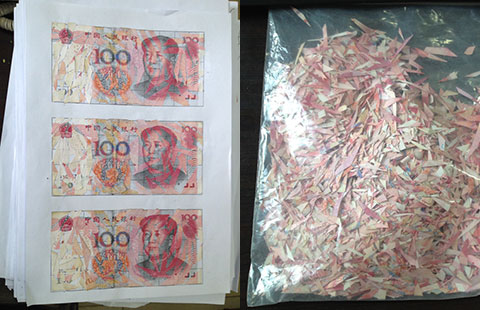Record number of Shanghai officials investigated for embezzlement, bribery
By Zhou Wenting in Shanghai (chinadaily.com.cn) Updated: 2016-01-19 19:25Seven bureau-level officials in Shanghai were investigated for embezzlement and bribery in 2015, a record for the city, an anti-graft watchdog announced on Tuesday.
"The figure is a rise of 40 percent from that of 2014, and is quite eye-catching compared to the usually one or two in previous years," Ding Guping, director of the anti-corruption bureau at the Shanghai People's Procuratorate, told a news conference on Tuesday.
The seven officials were among 428 civil servants and 363 corruption cases investigated by prosecuting agencies last year. In nearly 95 percent of the cases, the graft involved more than 50,000 yuan ($7,600), and in 88 cases, it was valued at more than 1 million yuan, the watchdog reported.
"We received whistle-blowing reports for some of the cases and found clues for others from some incidents in news coverage," said Zheng Yongsheng, director of the Shanghai Anti-malfeasance Bureau under the procuratorate.
Among those under investigation was Dai Haibo, former deputy secretary-general of the Shanghai Municipal People's Government, who also served as executive deputy director of the administrative committee of the China (Shanghai) Pilot Free Trade Zone from September 2013 through September 2014. He was accused of abusing his power between 1999 and 2012 to gain benefits for others in exchange for bribes.
Feng Jun, former general manager of State Grid Shanghai Municipal Electric Power Co, was investigated after being accused of seeking profits for others by taking advantage of his position between 2003 and 2014, and requesting and taking bribes worth a total of 30 million yuan, including some requested and accepted by his wife.
"The amount, including bribery and a huge amount of property and money for which he could not identify sources, added up to over 100 million yuan, which was a record high in Shanghai's anti-graft actions," Ding said.
In May, Shanghai took the lead in banning the spouse and children of bureau-level officials from engaging in business. The rule was aimed at eliminating graft and building a clean government.
Spouse of such officials are barred from going into business and their children and the spouses of their children are not allowed to start businesses in the geographic and professional sectors for which the official has jurisdiction.
"All the seven cases are currently being investigated by the prosecuting agency or court. Court verdicts have not been released yet," Ding said.
Another 112 people involved in 89 cases were also put under investigation last year for bribery, according to the anti-graft watchdog. The number of people involved saw a year-on-year increase of 40 percent.
"When there are officials who accept bribery, there must be people at the other end that offer the bribery. We target both ends to clamp down on the source of corruption," Ding said.
- China looks to move career barriers for top foreign talents
- Cross-Straits free trade discussions on hold
- Working-age population sees biggest drop in modern history
- Biting storms to chill southern regions
- Chinese find world's largest canyon below Antarctic
- KMT says it's time for review after rout in vote
- Young Chinese shooting victim mourned in US
- China playing major role in oil selloff
- Database launched to check identity of Living Buddhas
- China's securities watchdog denies resignation offer from chairman







